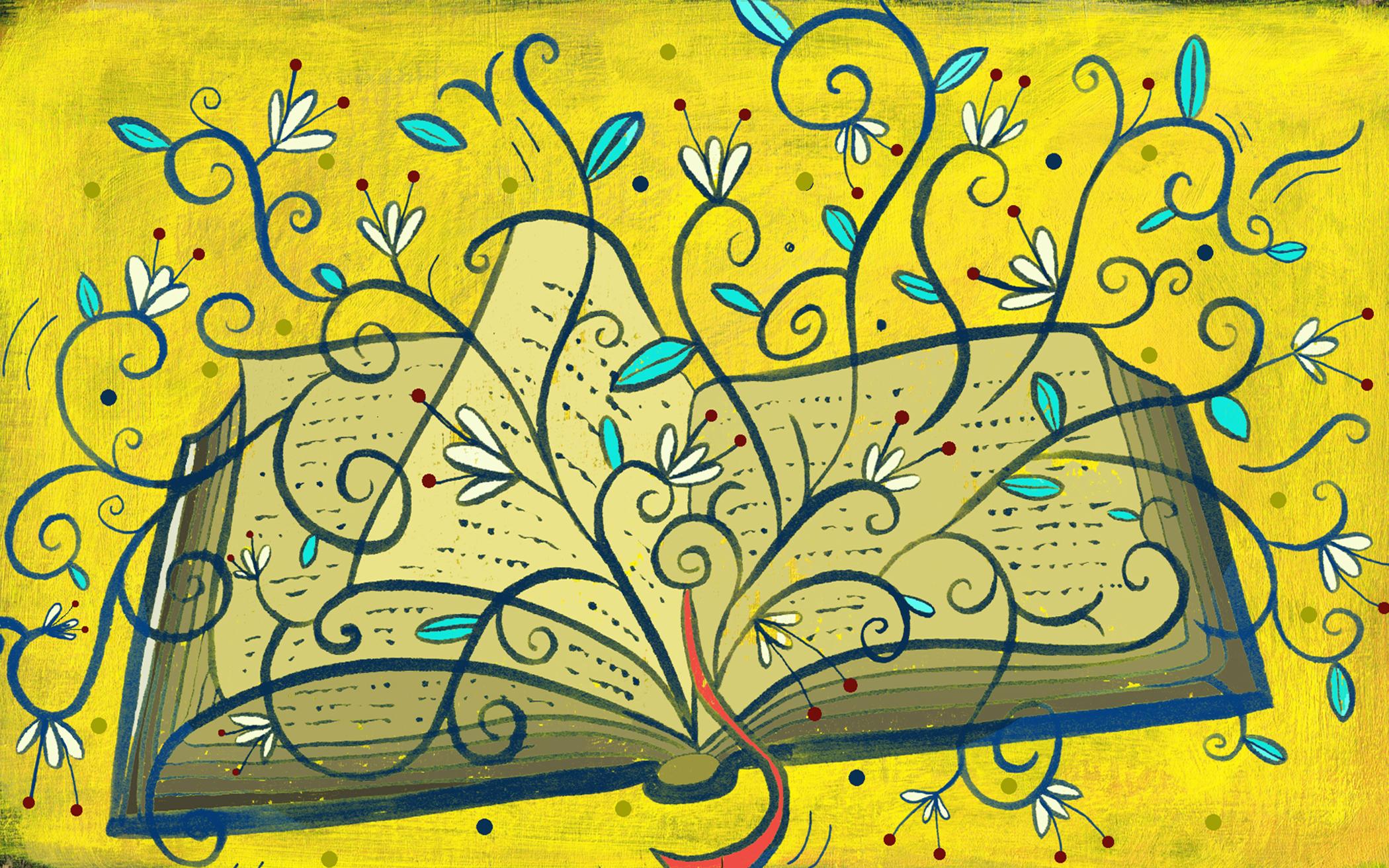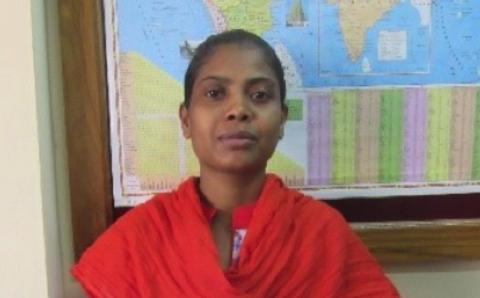In Marilynne Robinson’s novel Lila, old Reverend John Ames finds himself worried by his new wife’s approach to the Bible. Ames is the son and grandson of pastors and has spent the better part of his many days reading and preaching the Bible. Lila, on the other hand, is uneducated and only recently acquainted with church. Yet she loves to copy verses from the Bible onto a notepad, and her favorite author is the prophet Ezekiel. Reverend Ames becomes concerned because she is reading and rereading portions of Ezekiel 5 (“I will make you a desolation and a reproach among the nations around you, in the sight of all who pass by . . .”) at the expense of what he views as more accessible and useful parts of the Bible. He asks her, “Why Ezekiel? That’s a pretty sad book, I think. I mean, there’s a lot of sadness in it. It’s a difficult place to begin.” Lila responds, “It’s interesting. It talks about why things happen.”
Ames, always the preacher, feels the need to educate Lila with the proper theology and the proper context by which to make sense of God, Israel, judgment, and the rest. But Lila has little interest in Ames’s theological tricks to avoid reading the Bible itself. Robinson describes Lila’s thoughts: “She was mainly just interested in reading that the people were a desolation and a reproach. She knew what those words meant without asking. In the sight of all that pass by. She hated those people, the ones that look at you as if they want to say, Why don’t you get your raggedy self out of my sight. . . . [Here was Lila herself, right] in the Bible. Don’t matter if it’s sad. At least Ezekiel knows what certain things feel like. That voice above the firmament. He knows the sound of it.”
I spend my workdays writing about and teaching the Bible. Nothing makes me happier than to be asked to help answer questions about the Bible, to promote better comprehension of Scripture, and to pass along tools and insights I’ve learned. In my experience, however, it’s rare that even the best preachers or scholars or teachers will help you want to read the Bible (other than by the contagiousness of their own enthusiasm). It has to come from you, just like it did for Lila. And that means curiosity and delight, not compulsion and how-to books.
If you’re reading this article and thinking, Right, yes, I’m so bad about reading the Bible, so I need to commit to a reading plan, or buy a good devotional or a fancy new study Bible, and I hope TheBanner gives some good suggestions—stop. Just stop. If you read the Bible out of obligation or guilt, little good will come, and your time is better spent on other activities (I recommend poetry, hiking, or volunteer work).
Likewise, if you’re reading this and thinking, Well, I go to Bible study every week, and do devotions with every evening meal, so this article should make me feel good about myself—watch out! Are you really reading the Bible, or do you think you already know what it says (and what it does)? Many of us, not least the “church lifers,” are exceptionally skilled at avoiding reading the text itself. Even when we “study the text,” our assumption that we know what it should say (think of Reverend Ames) prevents us from noticing what it actually does say. Put your trusty study Bible down for a while; those notes tend to swallow up all our attention. Get a new translation or two (try the NRSV alongside The Message). Read a version without the chapters and verses marked (make your own with a computer and a printer, or check out bibliotheca.co). Whatever you do, read—and read expecting to be surprised.
What Lila encounters in Ezekiel is a conversion of her imagination, and in this she helps us with both the “why” and the “how” of Bible reading. While I value catechesis and good theological education from childhood on (by all means, learn the Heidelberg Catechism, read The Jesus Storybook Bible with kids, and ask a trusted pastor or biblical scholar about good books and study tools), the thing I hope most for myself and my young children is that the Bible forms us. It elicits unexpected questions. It makes us react differently to the people and things around us. It carries us to a world that is altogether different, yet makes us, like Lila, feel more at home than any other place.
If Lila’s fascination with Ezekiel seems dangerous (Wait—she reads Ezekiel but hasn’t yet read John 3:16!), relax. As James, Paul, and nearly every other biblical author remind us, the measure of our grasp of the Bible is whether it is put into play in our lives, in community and through the Spirit. If our reading results in retreat from the world, hatred toward human beings, neglect of the marginalized, or the desecration of the earth, something has gone awry, no matter how long a tradition has been around or how sound our exegesis seems to be.
Most of us won’t begin with Ezekiel. But avoid thinking that the Bible—for children or adults—begins with Noah, Goliath, and Jesus in a manger because far too often this means we end there too. Do you like snakes, ships, and (dare I say) sex? Flip to Proverbs 30:18-19 and discover wonder. Are plot twists and trickery up your alley? Spend a day with Michal and David (1 Sam. 19), and chat with some kids about whether it’s ever okay to lie (and consider the better questions the text raises about two competing options that seem equally good). Like to sing? I dare you to read Mary’s song (Luke 1:46-55) or Psalm 40 and try to keep silent. Have trouble with Revelation? Read it out loud with a group of teenagers, in a prison, or with the homeless and let its explosive beauty wash over you like a thunderstorm.
God’s incredible gift was to give us a great big story, filled with smaller stories and many types of literature, not a list of what to believe. We begin like kids, with identifying what’s there, and then embark on the beautiful back-and-forth between the Bible and the rest of the world. With each circuit we return both changed by our experiences and ready to be surprised again. Do it with others. Learn from other readers of the Bible from cultures and times far from your own. Pray as you read, or read as you pray. Weep, lament, scream, shout. Most of all, read because you want to. I like to think Lila would also recognize herself in the exclamation of that other great prophet, Jeremiah: “When your words turned up, I feasted on them, and they became my joy, the delight of my heart” (Jer. 15:16-18, CEB).
After all those failed attempts at reading the Bible, in spite of (or because of) having all the resources in the world at our fingertips, how can this response happen? How are we to delight and feast on these ancient words? The answer for Jeremiah—and for Lila, for you, and for me—is that it’s simply who we are: “I belong to you, Lᴏʀᴅ God Almighty” (Jer 15:16, GNT).
About the Author
Benjamin Lappenga is associate professor of theology at Dordt College in Sioux Center, Iowa, where he teaches courses in biblical studies, hermeneutics, and Greek.









